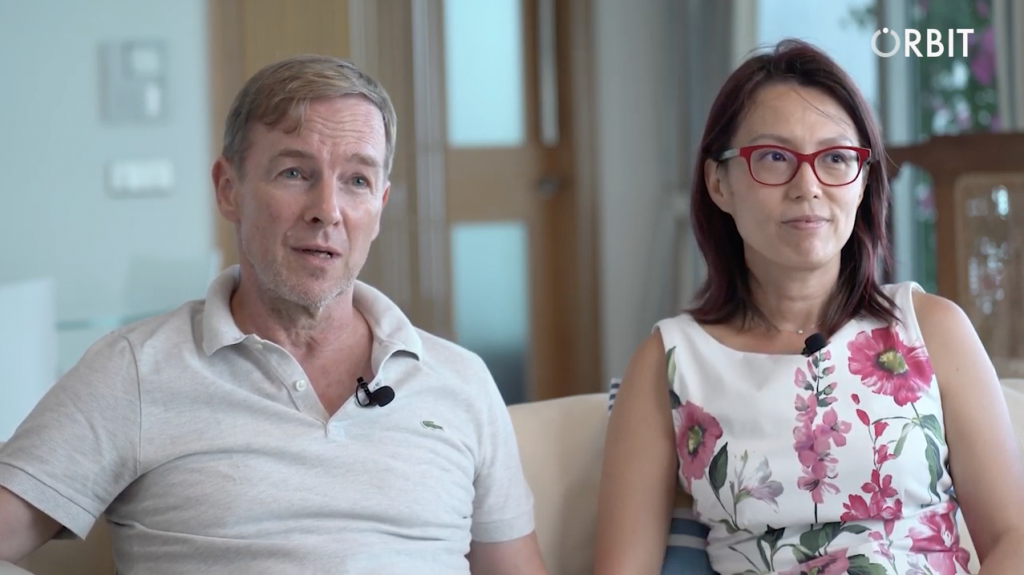Jerome and his wife Susan have been living in Singapore for the past 25 years. At age 58, Jerome was diagnosed with Parkinson’s Disease (PD) and, like many of those before him, was in disbelief. It was only after seeing a third specialist did Jerome’s diagnosis really sink in. His wife Susan, being a professional nurse and operator of a local social enterprise group immediately switched her research focus from dementia to PD.
Together, they proactively researched and found studies suggesting physical activities such as boxing can improve a person’s motor functions. After not seeing such programs available in Singapore, they began reaching out to traditional boxing gyms asking if anyone would be interested in working with a PD patient. That is when Jerome and Susan found The Ring, a local boxing gym. Jerome notes,
Boxing really helped me… It helps my balance, it helps my mobility, it helps my speed because we are very slow. Also I would say it helps my stiffness, cramps, and [most] important of all, [it] helps with my concentration, my focus. When [are] boxing you have to be focused unlike running, jogging, or cycling where your mind can wander.
Though boxing has helped Jerome gain better control of his overall well-being, Jerome largely relies on medication to manage his Parkinson’s symptoms like millions of other PD patients. Jerome again,
I was a bit surprised [by] the way my life was going on the medical side. I have to make an appointment [every] six months with my neurologist. He will check my symptoms, adjust my medication, and fix another appointment for the next six months. It makes me [wonder] how in half an hour you can diagnose, or take into account what has been happening over the last 6 months and adjust medication… I was uncomfortable.
Believing perhaps he just didn’t find the right neurologist, Jerome decided to visit other specialists but kept running into the same problem. That is when he and Susan discovered Orbit. Through sensor and AI technologies, Orbit works with people like Jerome to offer them home monitoring solutions to better understand their symptoms and response to treatment day by day, hour by hour, and minute by minute. Our goal is to provide physicians and patients with the missing insights to enable effective treatment personalization of chronic diseases. In doing so, we aim to create better patient outcomes and improve the quality of life for patients and caretakers alike.
Commenting on the importance of objective measures and proactive disease management, Susan says,
Evidence-based practice is important. If we can find evidence, then yes. But, if we can’t find evidence, how can we claim something is working or not?
Through all of this, Jerome and Susan have remained positive. They are waiting for COVID to subside to continue traveling and encourage others with Parkinson’s to not let the disease control their lives. Susan comments,
I think it’s important to not ask people to excuse you for your motor symptoms, but actually to tell people you have these symptoms because of this disease and that’s part of you now. And so if they want to socialize with you, they have to accept that. I always tell people that…the person who has [these symptoms] is your mother, is your father and that’s part of them now. You’ve got to embrace that as part of them. You cannot separate them.
We here at Orbit want to thank Jerome and Susan for sharing their inspiring story and we look forward to bringing more innovation to benefit people with Parkinson’s and other chronic conditions.
Learn more about Jerome and Susan here. To learn more about Orbit and how we are enabling personalized treatment of chronic diseases click here.



